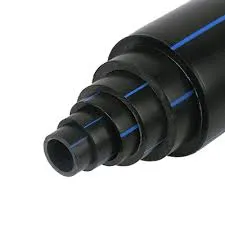نويابىر . 15, 2024 05:46 Back to list
pvc chemical pipe
The Role of PVC Chemical Pipes in Modern Industry
Polyvinyl chloride (PVC) has emerged as a key material in the manufacturing of chemical pipes, effectively transforming various sectors, particularly those involved in chemical processing and transportation. The attributes of PVC, combined with advanced production techniques, allow for the creation of robust and versatile piping systems that cater to a diverse range of industrial applications.
Properties of PVC Pipe
One of the defining characteristics of PVC is its chemical resistance. This property makes PVC pipes ideal for transporting a wide array of chemicals, including acids, alkalis, and organic solvents. Unlike metal pipes that may corrode over time, PVC maintains its integrity and performance even when exposed to harsh substances. The smooth interior surface of PVC pipes also contributes to lower friction loss, enhancing flow rates and efficiency within the piping system.
Moreover, PVC pipes are lightweight yet durable, making them easy to handle and install. This attribute also means that they do not require extensive support structures, reducing overall installation costs. Additionally, PVC piping systems are less prone to leaks, which is critical for safety in chemical handling. The fusion welding technique used in joining PVC pipes creates a strong bond that significantly minimizes the likelihood of failure at joints.
Applications in Chemical Industry
The versatility of PVC chemical pipes extends across various applications. In the chemical industry, they are used for both transportation and storage of chemicals due to their reliability. For instance, PVC pipes are frequently employed in wastewater treatment plants where they transport corrosive wastes. Moreover, they are utilized in agricultural applications for the safe conveyance of fertilizers and pesticides.
pvc chemical pipe

In the pharmaceutical sector, the purity of the materials used is a crucial factor. PVC pipes are manufactured without toxic leachables and are compliant with industry standards, making them suitable for transporting substances in sensitive environments. Similarly, in food processing facilities, PVC is preferred for its non-reactive properties, ensuring that the integrity of the product is maintained throughout the transport process.
Environmental Considerations
While PVC pipes offer numerous advantages, it is essential to address the environmental impact associated with their life cycle. The production of PVC involves the use of chlorine, which raises valid concerns about the generation of harmful by-products. However, advancements in technology and recycling initiatives are working towards mitigating these issues. Many manufacturers are focusing on sustainable production processes and promoting the recycling of PVC products, thereby reducing waste.
Furthermore, PVC pipes can contribute to energy efficiency, as their lightweight nature reduces transportation costs and emissions associated with logistics. The longevity of PVC pipes also minimizes the need for frequent replacements, leading to less waste generation in the long term.
Conclusion
In conclusion, PVC chemical pipes represent a significant advancement in industrial piping systems. Their exceptional chemical resistance, lightweight properties, and durability make them a preferred choice across various industries, particularly in chemical processing and transportation. As the industry continues to evolve, it is crucial for manufacturers and users alike to embrace sustainable practices that minimize the environmental impact of PVC production and disposal.
As industries strive for more efficient and environmentally friendly solutions, the role of PVC pipes remains pivotal. The combination of performance and adaptability positions PVC as a leading material in the ever-demanding landscape of chemical transportation, ensuring that it will remain relevant in future industrial innovations. As we look to the future, ongoing technological advancements and a commitment to sustainability will further enhance the role of PVC in meeting the demands of modern industry.
-
Durable HDPE Sheet | Versatile & Impact-Resistant Plastic
NewsAug.13,2025
-
Premium PVC Soft Sheets: Clear, Flexible & Durable
NewsAug.12,2025
-
Premium PVC Round Rods: Durable, Chemical Resistant, Easy to Machine
NewsAug.11,2025
-
PP U-channel: Chemical-Resistant, Lightweight & Durable
NewsAug.10,2025
-
Transparent PVC Pipe: Clear Flexible Tubing for Fluids
NewsAug.09,2025
-
Durable PP Rigid Sheet: Versatile & High-Quality Plastic Panels
NewsAug.08,2025

